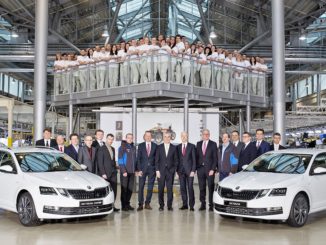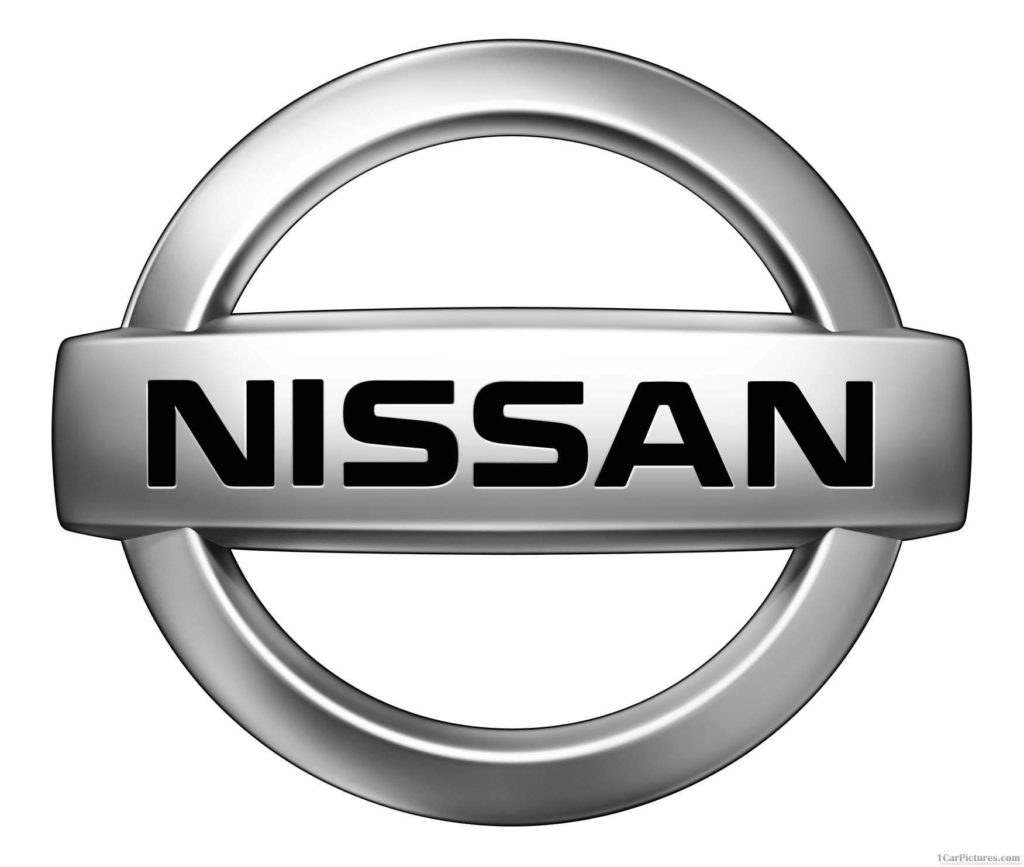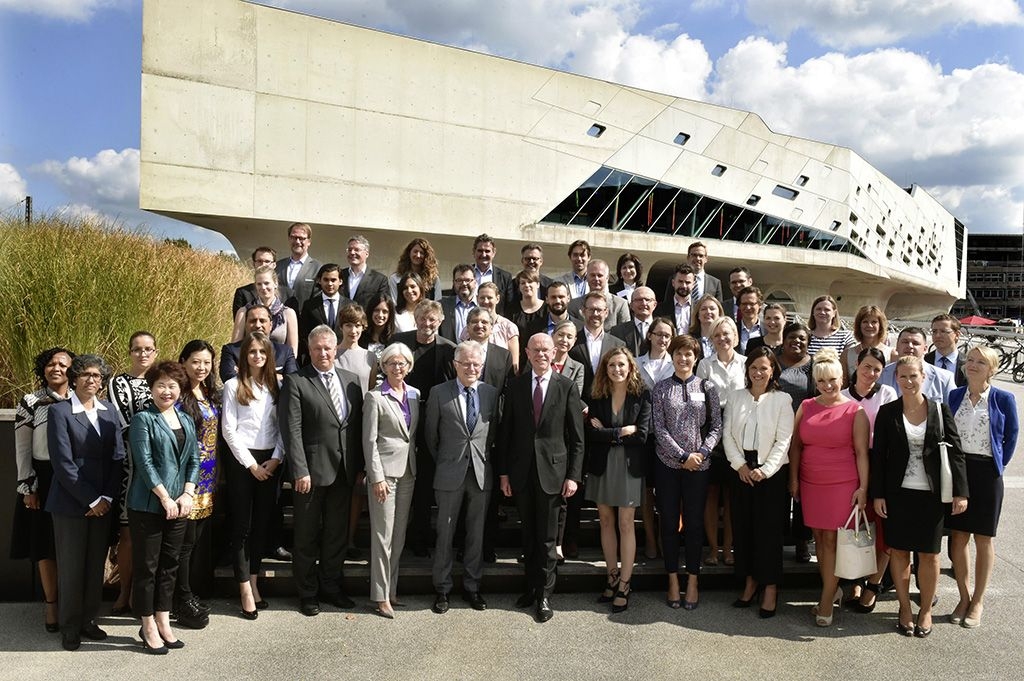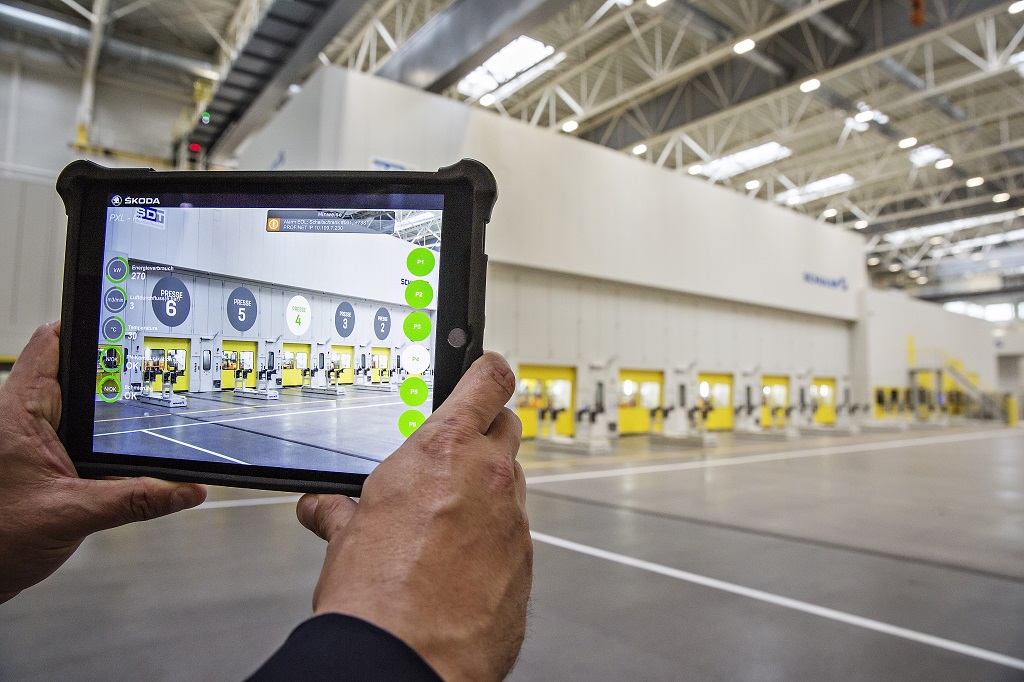
› First ŠKODA press line for aluminium body parts is one of the most modern in Europe
› Flexible production processes, shorter set-up times, 15% energy saving
› ŠKODA creates 140 new jobs in Mladá Boleslav with a second press line
› ŠKODA’s ‘GreenFuture’ strategy focuses on sustainable production and economical models
Mladá Boleslav, 6 April 2017 – At ŠKODA’s headquarters in Mladá Boleslav, the state-of-the-art servo press line PXL II has commenced full operation. The line enables large aluminium parts to be processed for the first time. Up to 23,000 press parts can be produced each day for various models. PXL II makes the production process significantly more flexible and reduces energy consumption by 15 percent compared to conventional systems, making it an important part of ŠKODA’s ‘GreenFuture’ environmental strategy. The car manufacturer is creating 140 new jobs in Mladá Boleslav thanks to the press line.
“The new press is an important element in our ‘GreenFuture’ environmental strategy, which focuses on resource-saving and sustainable production as well as energy-efficient vehicles,” says Michael Oeljeklaus, Board Member for Production and Logistics. “In continuous operation, up to 15 percent less energy is used compared to conventional press lines. The line is one of the most modern of its kind in Europe.”
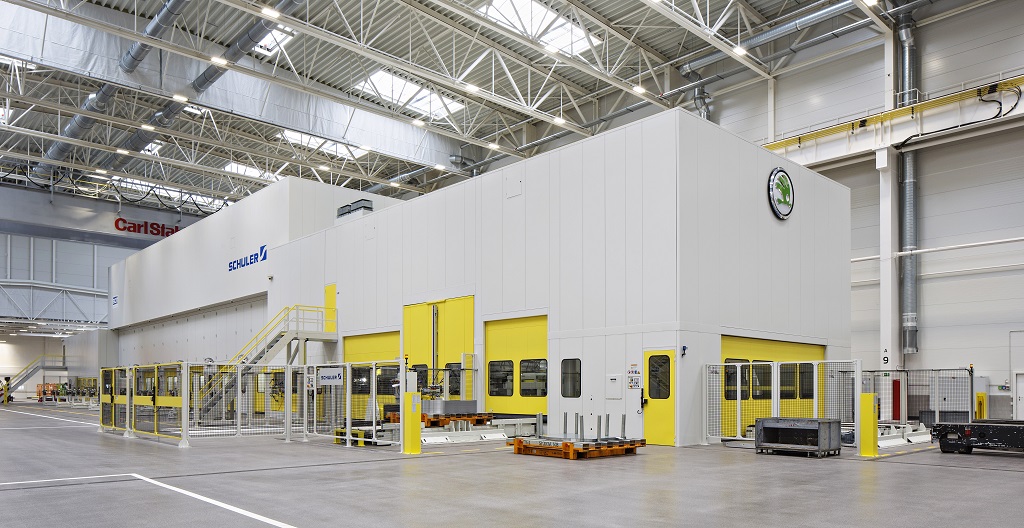
The new PXL II, alongside the servo-mechanical press line PXL I, which went into operation in 2013, is the second press line at ŠKODA’s headquarters in Mladá Boleslav. Both are among the most advanced of their kind in Europe. There are only 20 presses of this type in the entire Volkswagen Group. One special feature of PXL II is the energy-recovery system, whereby the energy released during the pressing process is recuperated and reused later in the production process.
The new press line enables a particularly flexible production process: The conversion energy can be adjusted and regulated as required via 14 decentralized servomotors. Add to this the ease of use and significantly shorter set-up times; exchanging a press tool now takes less than three minutes. Each one of up to 23,000 press parts produced daily on the new line goes through quality control.
The construction work on the 11,600-square-meter hall 4 for the new press line began in late 2015, and the entire 3,000-tonne line was transported from Erfurt to Mladá Boleslav in spring 2016. The first, 561-kilometre stage to the Czech town of Mělník was completed on the Elbe River. For the final 195 kilometres to the destination, the PXL II was split up and carried on 40 trucks. The trial operation of the new press line began in December 2016.
ŠKODA focuses on sustainable production and fuel-efficient vehicles
ŠKODA bundles its environmental activities under the umbrella of the ‘GreenFuture’ strategy. Investments such as the new resource-conserving press line fall under ‘GreenFactory’. In the case of vehicle production, key figures such as energy and water consumption and the amount of waste generated per car are precisely measured and optimized. The same applies to emissions of CO2 and volatile organic compounds (VOC), which are generated, for example, when painting the car bodies. In these parameters, ŠKODA has achieved a 45.8 percent lower environmental impact over the past six years alone – and the trend is rising. The second pillar, ‘Green Product’, focuses on new ŠKODA cars. Today, for example, they are characterized by a recycling rate of at least 85 percent of the vehicle weight.
To accelerate this positive trend, the company has set ambitious environmental goals: ŠKODA will halve the environmental impact of its production by 2018 compared to 2010. The corresponding measures cover all areas of the company. The car manufacturer has reduced power consumption by means of motion-detector lighting systems in storage rooms, as well as new lighting concepts at its loading stations. Added to this, there are special oil filter systems, which allow the lubricants required in the production process to be used for an even longer period of time.
